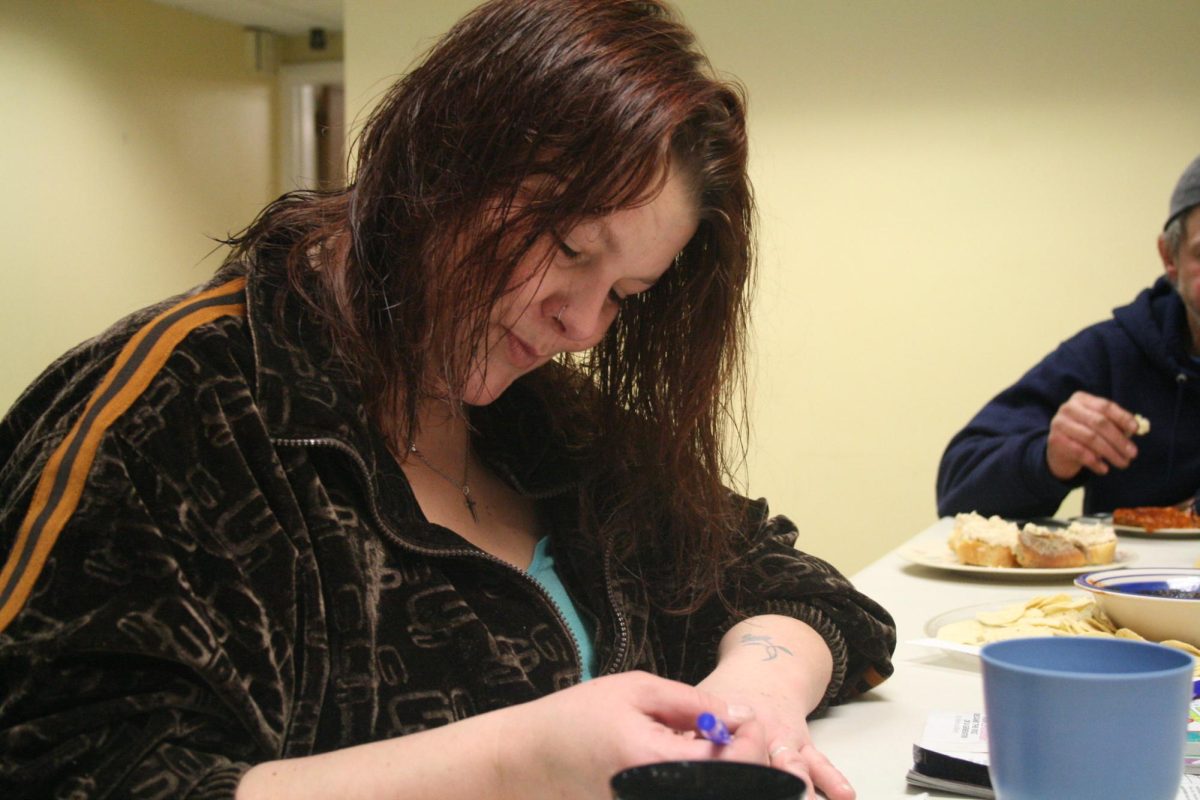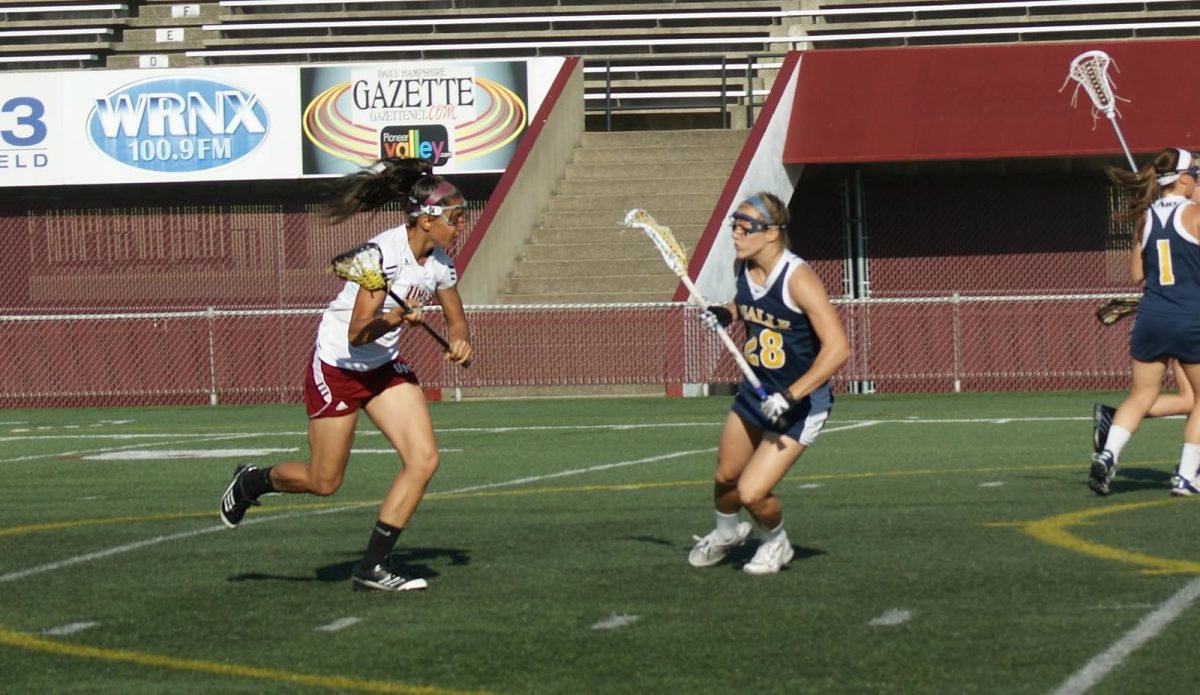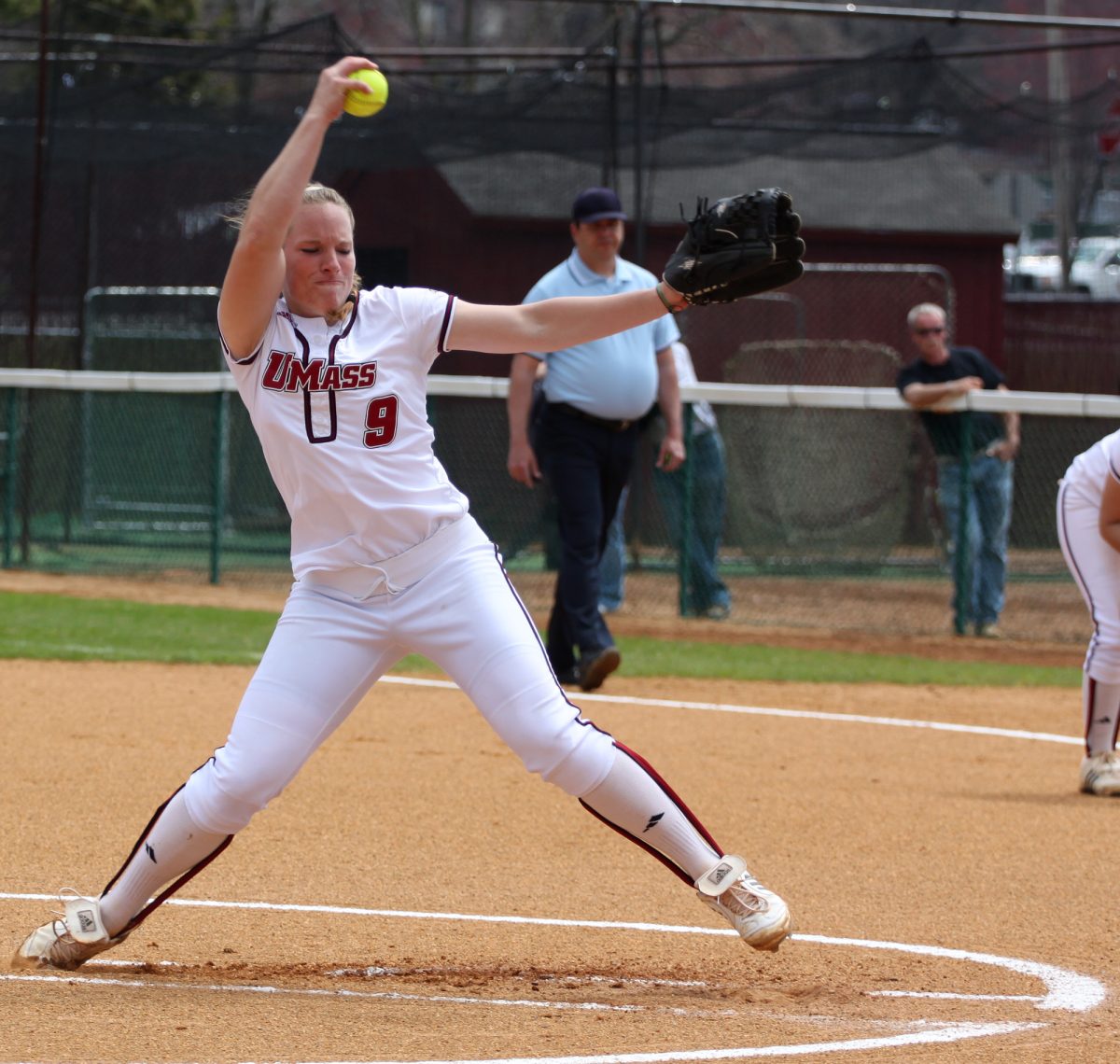 Brian Tedder, Collegian staff
Brian Tedder, Collegian staffIt was about a month into Toni Paribello’s second semester when the University of Massachusetts sophomore received a subpoena.
“It’s one of those things you say that it will never happen to me,” said Paribello, who was a freshman living in Thoreau Hall last year when the incident occurred. When she heard a song she liked, she would download it off of LimeWire.
“Everybody I knew had the program, and everyone I still know has it,” said Paribello.
Like 1,400 other members of the UMass community in 2006-07, she received an e-mail from the Office of Information Technologies (OIT) saying that she committed copyright infringement. Her Internet access would be shut off, and she would have to go into OIT to sign a notice of copyright violation form.
This is standard UMass protocol because of its Internet “NetReg Conditions of Use,” which requires that students use only “legal versions of copyrighted software in compliance with vendor license requirements.”
“We don’t actively look at students who share files,” said OIT Technical Consultant Young Min Kim.
Kim explained that through Peer-to-Peer (P2P) programs such as LimeWire, Kazaa, and BitTorrent, files that a person shares become public.
A private group called the Recording Industry Association of America (RIAA) creates usernames for themselves to search for people who are sharing copyrighted files on these programs, explained Kim.
They then record the file sharer’s IP address and issue a subpoena for illegal P2P sharing to that address. When this occurs, OIT is legally obligated to give the subpoena to the student.
“There’s nothing we can do when it’s the legal situation,” said John Dubach, special assistant to the chancellor and UMass chief information officer. “We have to respond to the subpoena.”
In recent legislation, the RIAA has named UMass as one of the top 25 offenders, and would like to require the school to use filtering software for P2P sharing, Dubach said.
However, he believes this strategy wouldn’t work for several reasons, including weak, easily bypassed software and freedom of speech issues.
Dubach also said that the RIAA is focusing their attention on on-campus students because of the high concentration of students.
The RIAA doesn’t catch people one at a time; they issue subpoenas in large numbers that have the same ISP address.
The RIAA works with companies that own 90 percent of all sound recordings produced and sold in the United States. Their job is to protect the intellectual property rights of their members, to perform research about the music industry, and monitor relevant laws, regulations and policies.
Since the University of Massachusetts is the web provider for most on-campus students, they are subject to scrutiny in numbers.
“I went into OIT to sign the waiver, but they said that I was a special case,” said Paribello.
OIT then gave her an envelope containing legal information about her subpoena from the RIAA and was told to go to the Student Legal Services Office (SLSO).
“I didn’t get a warning, I just got an envelope,” said Paribello. “I know that I was doing something wrong, but I feel I was cheated that I didn’t get a warning.”
Student Legal Services held an information session for 35 students, including Paribello, who were caught sharing music by the RIAA. The session was run by staff attorney Lisa Kent and directing attorney Charles DiMare.
“We do a complete factual investigation of all possible defenses,” said Kent.
The SLSO helps students understand several aspects of the case, she said, including the lawsuit process, the University’s role, and how a student can “quash” a subpoena, meaning to halt the subpoena process.
In addition, the SLSO monitors litigation across the country that is developing in this case law, and also looks into new defenses for students.
“Both before and after this meeting, I met with each student who sought our services individually, at least once,” said Kent.
Shortly after the SLSO episode with Paribello, a student in the group of 35 said her uncle was a litigator in California, and knew a lawyer in New York City, Jordon Glass, who was taking on a class action lawsuit against the RIAA.
Glass said he needed at least seven people from UMass to take on the case.
“My dad met with the lawyer and said he was legitimate,” said Paribello. “He got us all riled up, told us to get ready for wide media coverage with cameras and television.”
But after two telephone sessions, he never called the group of students back.
“Nobody could get in touch with him,” said Paribello.
Because she waited so long by relying on Glass to eradicate her settlement, she received another subpoena from the RIAA.
“The bill went from $3,000 to $5,000,” said Paribello. “The current situation was that if we paid the $3,000, we still weren’t safe. We were worse off.”
If Paribello was caught again, the RIAA would not give her the option of paying $3,000. She would have to pay $750 a song, which would come to much more than the initial settlement.
To pay off the settlement, the RIAA gave Paribello a payment plan of $800 a month. She took on three summer jobs and has paid off about $3,200 of the $5,000.
“For a college student, that is a lot of money,” said Paribello.
The money is one issue, but her other concern lies with the University.
“I firmly believe that UMass is doing nothing about this problem,” said Paribello. She felt the school should do more to educate its students on this issue.
“Our job is to try to inform the public to make better decisions,” said Kim.
OIT has created the “Don’t be an iPirate” campaign to spread the message that downloading and sharing copyrighted music is illegal. Kim also said that OIT sends out emails to Resident Assistants each semester to request informational sessions about file sharing.
Paribello said that this strategy won’t help students that much.
As a joke, she has an “iPirate” poster hanging in her room.
“UMass should make it well-known that this is what has happening to its students and also what is still going on,” she said.
Another way that UMass is trying to stop illegal file sharing is through the Student Government Association’s implementation of the free download program called Ruckus. Ruckus offers a database of over 2 million songs to download.
“The university is just the messenger and service provider,” said Kent. “Since they tell their students ‘this is illegal,’ they are not liable for students downloading files illegally.”
“The RIAA is trying to make an example of people, but nobody is finding out,” said Paribello. “It’s something that we shouldn’t have to deal with.”
Leif Walcutt can be reached at [email protected].






